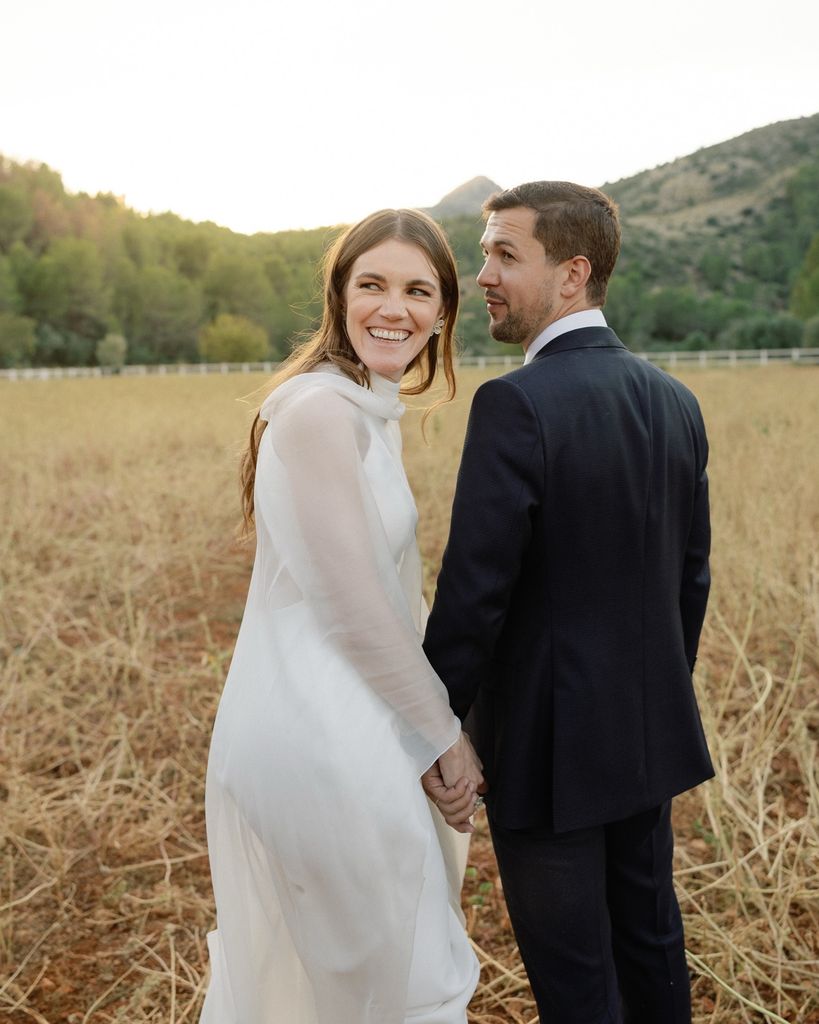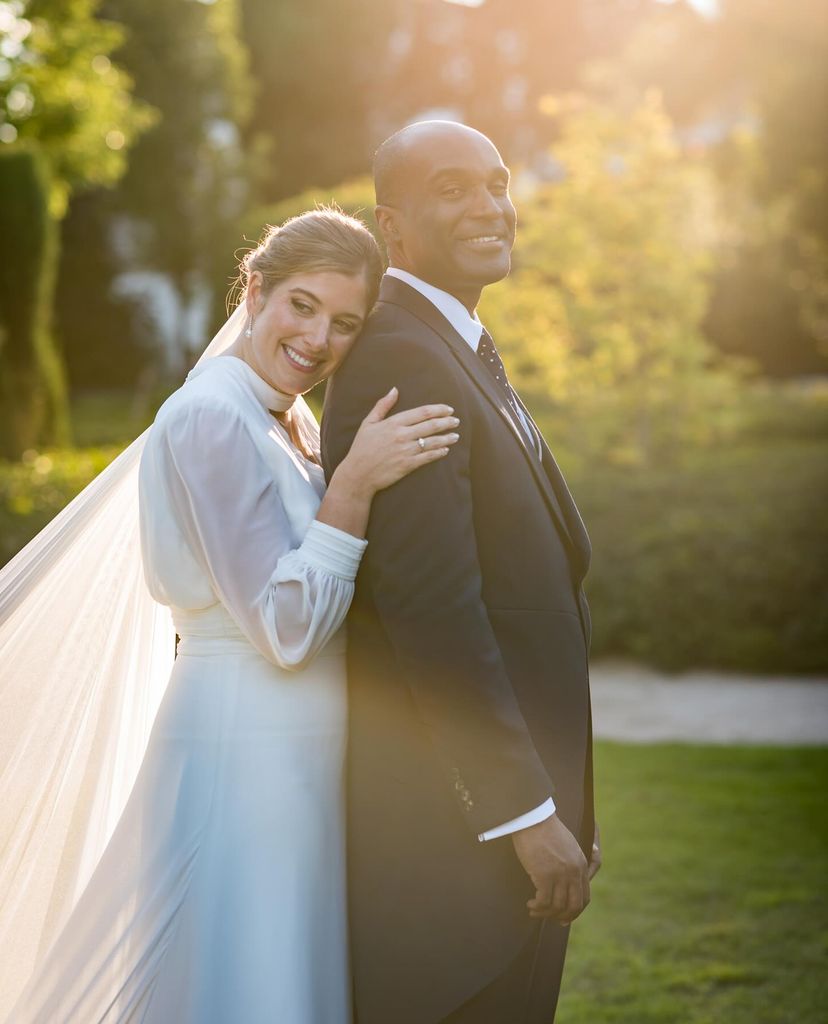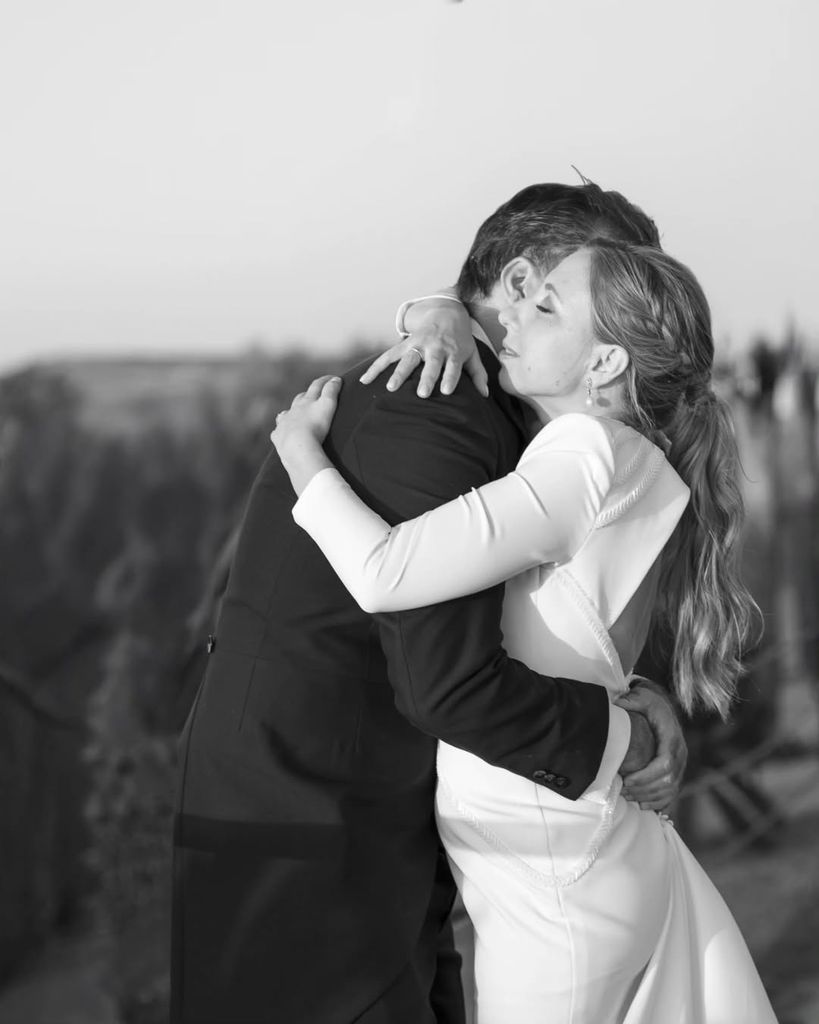It all starts with a request for a hand or with an agreement between both parties of the couple. This is how the countdown to a wedding begins. There are months of exciting preparations ahead, but as time passes, Nerves may appear and discord may make an appearance. “When a couple has decided to commit to spending the rest of their life together, they usually experience a mix of sensations, ranging from the tranquility offered by the fact that someone deliberately wants to be your companion on the road (which becomes certain security); to the sensation of vertigo because of what the commitment implies”, introduces the psychotherapist Lourdes Maderowhich operates in Madrid.
She explains to us that during this period the dreaded anticipation can appear, which can play tricks on us: “When we anticipate that negative things are going to happen, an old feeling appears. friend that in today’s society we all know, anxiety”. With it comes control and a cycle begins that is difficult to get out of.
Tips to say goodbye to anxiety
To avoid this circle, the professional invites us to ask ourselves the right questions: “Is there something that makes me afraid that will or will not happen at the wedding? Can I control it? Does it depend on me? Do I care more about the image I want to create with the event I’m organizing, or about enjoying the day being myself?” In a second stage, forecasting and organization They can be great allies to avoid falling into uncomfortable situations.
Alejandro Galiani Mejías, health psychologist at the Galiani Psychosanitary Center, explains it to us: “to better manage time and reconcile wedding planning with daily routine, we find different strategies that we can implement: establishing priorities and delegating tasks (to family members, friends or professionals) can ease the burden, setting a calendar with key dates avoids the feeling of improvisation (and leaving free spaces to enhance your self-care), manage realistic expectations (a wedding is important, but it does not define a relationship. It is important to encourage a flexible mentality), relaxation and mindfulness techniques (breathing exercises or meditation can be very useful) and opt for open communication (talk about nerves and worries with the partner or someone you trust generates emotional relief).”
To this list of recommendations to deal with nerves during wedding organization, Sevillian Teresa Alegre add other useful tips: “establish deadlines that can be met (realistic) and share them with all the people involved in the event, so that they are informed and can help us. Furthermore, it is convenient use the 10 second rulewhich consists of counting to 10 before speaking or saying what we have to correct or would like to happen. If we see that we are not able to relax after that time, it would be advisable to retreat to another place or change tasks until we can remain calm in certain circumstances. To do this, it is very important to take into account pragmatic breathing. “This type of breathing, when we manage to have a regular practice, will help us obtain a level of control over those situations in which we need calm to make a decision or make a comment.”
Delegate, the best decision
The first key, to avoid becoming saturated or falling into conflicts, lies in delegating. “It is not that it is recommended, it is that it is mandatory. We cannot achieve everything and that is the first thing we have to take into account, both in the organization of our wedding like in our life. Delegating is not synonymous with not being able. If we look for the meaning of delegate (“authorize (another) to do something in your place”), the same definition tells us that It’s something we could do ourselves, but we decided to give that task to someone else.”says Teresa Alegre. However, he warns us that this process will be complicated for those profiles that seek to keep everything under control: “We have to keep in mind that we are not all powerful nor can we expect everyone to know what we want, so assigning tasks and informing those involved in time so that they can organize themselves is essential.”
Lourdes Madero agrees with her, pointing out that it is necessary to carry out an internal dialogue with ourselves, which leads us towards honest decision-making. “I recommend that, in an act of sincerity with oneselfthe bride or groom answers the question: if I delegate, am I going to let the other organize according to their criteria even when I give them clear guidelines? Or am I going to have twice as much work because I’m going to pay attention to what he does or stop doing it so that it is to my liking?”, he emphasizes.
It is important to delegate because it has great benefits for our health and is a great liberation in those months before ‘I do’. In the words of Alejandro Galiani Mejías: “when we assume too many responsibilities, the mind becomes saturated, which can generate anxiety, frustration and even exhaustion. Delegating will allow us free up mental space and focus on what is truly importantalleviating the feeling of being overwhelmed. Additionally, entrusting tasks to others, whether family, friends or professionals, strengthens relationships and fosters a sense of collaboration that reminds you that you are not alone in this process.”
It is common that during the preparations, the fiancés have some discussions or diversity of opinions, in order not to fall into a conflict, it is advisable to listen to psychologists. “We assume that, as during the rest of the relationship, differences will arise. The wedding is still another of the many topics that must be discussed within the couple. From an attitude of respect, openness and assertive communication it is possible to negotiate, respecting what is important for each of the spouses. On the other hand, it is also important to take into account who is immersed in making wedding decisions other than the couple and establish limits, if necessary,” Madero explains to us.
Meanwhile, Alegre focuses on analyzing the different scenarios and getting to the point: “I usually explain a differentiation to my patients so that they can carry it out in the situations that occur to them. I tell them that, depending on the situation, we have three response alternatives which are: (1) worry about what has happened, (2) not worry about what has happened or (3) take care of the situation. Depending on the situation we are in, we should take one way of acting or another. Depending on whether we have the ability to change a situation or not, we should carry out the option of get busy or not worry“.
Step by step to avoid friction when organizing a wedding
Alejandro Galiani Mejías proposes a very useful step by step from “effective communication, with empathy and a focus on the main purpose: celebrating the union as a couple.”
- “The first step is to create a space for open and respectful dialogue. This means expressing opinions clearly and honestly, but also actively listening to the other person without interrupting or judging. Empathy is key in this process, trying to understand the reasons behind the other’s preferences helps defuse tensions and find common ground.”
- “It is important to remember that not everything can be a priority. Decide together which aspects of the wedding are most important to each of you and work on issues that allow you to incorporate significant elements for both. This exercise not only alleviates friction, but also strengthens collaboration and the sense of team in the relationship.”
- “Besides, set emotional and temporal boundariesif conflicts arise related to the wedding it is crucial. If a topic generates intense conflict, it is advisable to have a pause to reflect and resume the conversation at a calmer moment. Decisions should not be made under pressure or in the middle of a heated discussion.”
- “Finally, keeping the focus on the main purpose of the wedding can help reduce the intensity of conflicts. Remember that the event is a celebration of your love and not a test of perfection. In essence, addressing friction with patience, empathy and collaboration strengthens the relationship and allows you to enjoy the process, beyond specific disagreements.”
The expert explains to us that the bride and groom must understand the wedding as the beginning of a new stage, not an exam that must be passed: “during the period of preparation for a wedding, it is essential to prioritize emotional well-being, connection as a couple, and enjoy the process as much as possible.” Lourdes Madero agrees with this vision, who advises couples to change their attitude towards those wedding planning tasks that we do not feel like: “if I perceive it from the illusion, knowing that in principle it is a unique day, will promote a positive attitude without stress”. But, above all, it points out that not compare It is the key to enjoying the process, “it is a mechanism that is deeply rooted in us.”
Finally, Teresa Alegre recommends dating training, remembers that advance notice avoids problems and, she acknowledges, her best advice is to talk. “Speak, sit together as many times as necessarywithout external interruptions, without influence from family or friends and explain what you want and what you don’t want. When you come to a conclusion, then you can share it with your families. “Do not make hasty decisions, nor decide important things in front of others,” he concludes.





